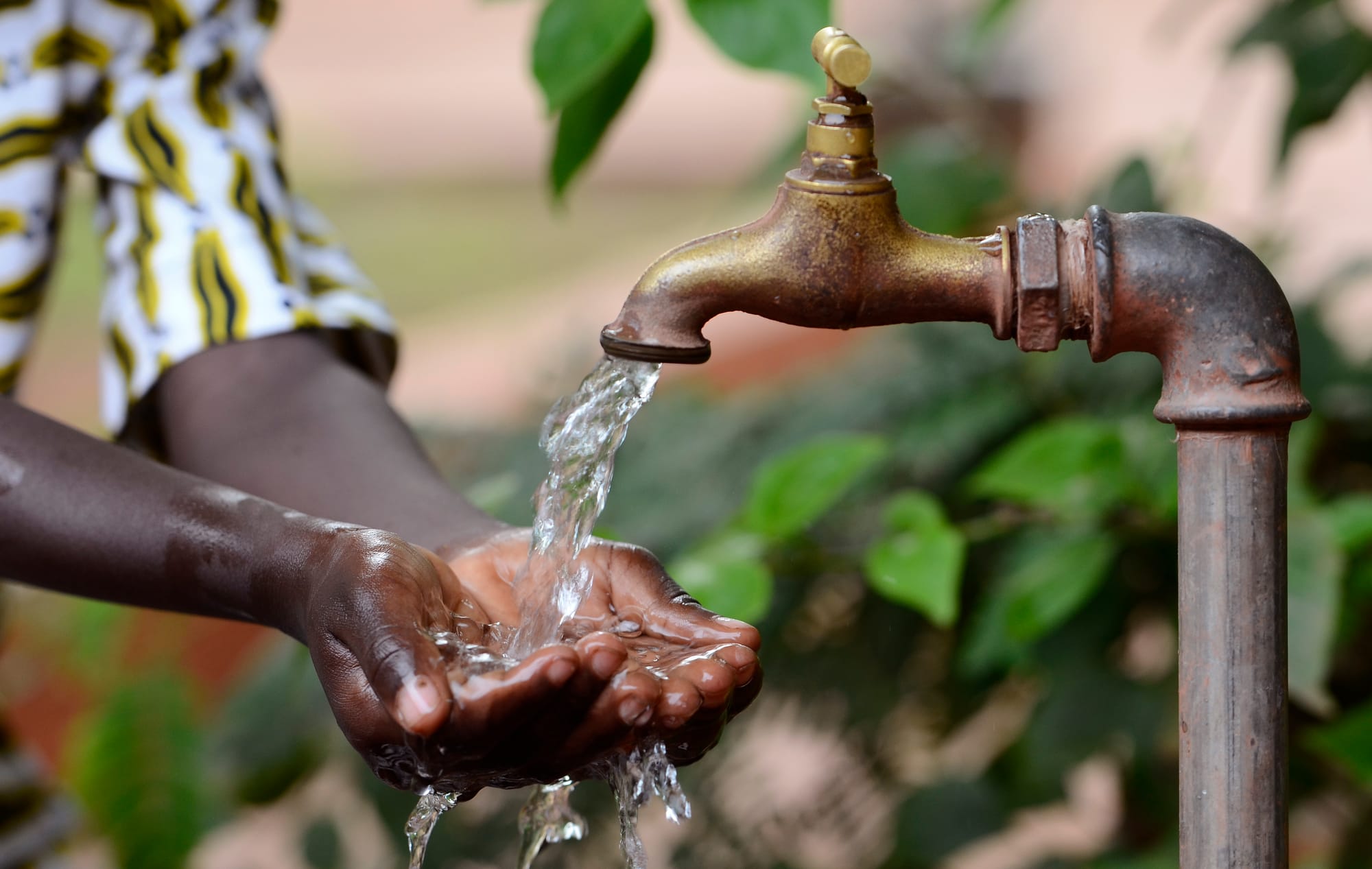WSaaU

Executive Summary
The MIAOBA Portable Water Supply Project, branded as “Water Supply as a Utility” (WSaaU), is a transformative initiative focused on providing reliable and affordable access to clean drinking water across under-served areas in Africa. In partnership with property owners, MIAOBA aims to tap into sustainable underground water sources, using advanced solar-powered infrastructure and a prepaid metering model to deliver clean water directly to homes. WSaaU is designed to enhance public health, sanitation, and quality of life while contributing to the socioeconomic growth of communities.
Problem Statement
Access to clean water remains a significant challenge across many African communities, with issues ranging from resource scarcity to infrastructure gaps. Traditional water sources are often distant, unreliable, and unregulated, leading to health risks and high costs. The WSaaU model aims to tackle these challenges by offering a local, automated, and affordable solution for water access.
Objectives
1. Provide affordable, high-quality water to under-served African communities.2. Create sustainable water infrastructure that minimizes environmental impact.3. Implement a scalable service model that supports socioeconomic development.4. Promote public health and sanitation by ensuring a consistent, clean water supply.5. Enhance resource management using real-time monitoring and data analytics.
Project Description
1. Sourcing Water: Boreholes and Strategic Partnerships- Exclusive Partnerships: MIAOBA will collaborate with property owners to secure strategically located sites for drilling boreholes, tapping into underground water sources.- Borehole Infrastructure: Each borehole will be equipped with state-of-the-art filtration and purification systems, ensuring the water meets quality standards.- Sustainability: By using boreholes, the project reduces dependency on unreliable surface water sources, securing a consistent supply with minimal environmental disruption.2. Distribution Network- Pipe Network: MIAOBA will install an extensive pipe system that transports purified water from boreholes to residential areas.- Solar-Powered Pumps: The pipe network will rely on solar pumping technology, ensuring energy-efficient and environmentally friendly water distribution.- Accessibility:The network will serve homes directly, eliminating the need for residents to travel long distances for water.3. Smart Monitoring and Metering- Pressure and Water Level Monitoring: Advanced monitoring systems will ensure optimal water pressure and levels within the distribution network, reducing the risk of overuse or leakage.- Prepaid Water Meters: MIAOBA’s prepaid meters allow residents to pre-purchase water, providing control over their water usage and making the service accessible and affordable.- Automated Data Collection: The monitoring system collects data on water flow, pressure, and usage patterns, enabling MIAOBA to optimize service delivery and promptly address any issues.4. Payment Model- Prepaid Subscription:The prepaid model allows residents to purchase water in units, offering flexibility and affordability based on usage needs.- Mobile App Integration:Users will be able to top up their prepaid accounts via a mobile app, which also provides real-time usage data, service alerts, and account management options.- Subsidized Rates:For economically disadvantaged areas, MIAOBA may offer subsidized rates to ensure equitable access to clean water.
Technical Infrastructure
1. Solar-Powered Pumping Stations: Solar pumps provide a renewable energy source, reducing operational costs and environmental impact.2. IoT-Enabled Monitoring Systems: IoT sensors will monitor water quality, pressure, and flow rates in real time, enabling predictive maintenance and efficient resource management.3. Mobile and Web Platform: A user-friendly platform will allow residents to manage their subscriptions, monitor usage, and receive notifications on service updates or maintenance schedules.4. Automated Metering and Billing: Prepaid meters track usage and balance, offering transparency and ease of management for users and MIAOBA alike.
Environmental and Economic Impact
1. Sustainable Water Use: By utilizing underground water sources and renewable solar energy, the project minimizes its carbon footprint and aligns with global sustainability goals.2. Job Creation: WSaaU will create employment opportunities in areas such as borehole maintenance, distribution management, and customer support.3. Community Health and Productivity: Access to clean water directly improves health outcomes, allowing residents to dedicate more time and resources to productive activities, which in turn supports community development.
Implementation Phases
1. Phase 1: Pilot Program- Identify initial communities and secure partnerships with property owners.- Install boreholes, solar pumps, and distribution pipes.- Implement prepaid meters and monitoring systems.- Conduct user training sessions on water conservation and prepaid management.2. Phase 2: Scale-Up- Expand borehole drilling and network installation across additional communities.- Upgrade monitoring systems with AI-driven predictive maintenance for reduced downtime.- Integrate data analytics for usage forecasting and resource optimization.3. Phase 3: Full-Scale Deployment - Implement the mobile platform with enhanced user features. - Establish customer service hubs for support and troubleshooting.- Monitor community impact and adjust service levels to meet growing demand.
Conclusion
The MIAOBA Portable Water Supply Project represents a revolutionary step toward securing clean, affordable water access for African communities. By combining strategic borehole drilling, a sustainable distribution network, smart monitoring, and a prepaid model, MIAOBA is positioned to make a lasting positive impact on health, sanitation, and community development. This project demonstrates MIAOBA’s commitment to providing turnkey solutions for socioeconomic growth, transforming water supply infrastructure across the continent.
Call to Action
We invite investors, community leaders and property owners, as well as technology partners to join us in making the MIAOBA Portable Water Supply Project a success. Together, we can build a resilient and sustainable future for Africa, ensuring that every household has access to the essential resource of clean water.